
Featured Videos |view more
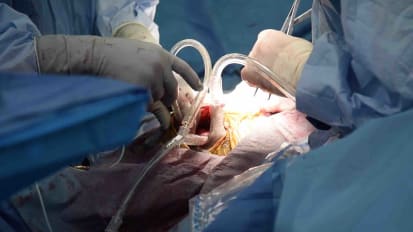 Video
Video
Hyperthermic Intraperitoneal Chemotherapy for Abdominal Cancers
MUSC surgeon Ramsay Camp, M.D., discusses HIPEC for patients with cancer within the peritoneum, which is hard to treat with intravenous chemotherapy.
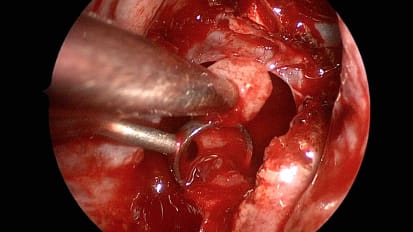 Video
Video
Endoscopic Endonasal Resection of Pituitary Tumors
Alexander Vandergrift, M.D., a neurosurgeon at MUSC, describes removing a nonfunctioning pituitary tumor from a patient through endonasal resection using an endoscope.
 Video
Video
Limb Salvage Surgery for Pediatric Bone Sarcoma
MUSC is one of a few centers in the country that offers advanced skeletal reconstruction and limb salvage surgery for pediatric bone sarcomas.
 Video
Video
Awake Craniotomy and Tumor Resection
Abhay Varma, M.D., MUSC Health neurosurgeon at the Hollings Cancer Center, discusses the awake craniotomy and tumor resection procedure.
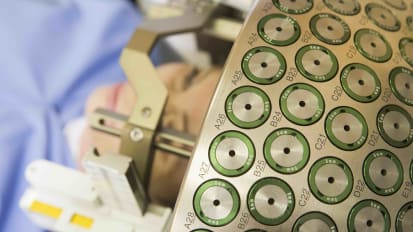 Video
Video
Gamma Knife Surgery for Brain Tumors
Gamma Knife Radiosurgery is a service offered by MUSC for treatment of brain tumors, pain syndromes, arteriovenous malformations, epilepsy, and psychiatric disorders.
 Video
Video
Robotic Abdominoperineal Resection With Robotic Flap Harvest for Vaginal Reconstruction
Although technically challenging, robotic abdominoperineal resection (APR) with robotic harvest of the rectus abdominus muscular flap can eliminate the need for a midline laparotomy, reduce wound infection rates and lead to faster recovery.
Featured Articles and Documents |view more
 News
News
A Better Biomarker for an Aggressive and Fatal Liver Cancer
Finding cancer quickly is key in securing the best possible outcome for the patient. An MUSC research team has found a way to make a lethal type of liver cancer more easily detectable.
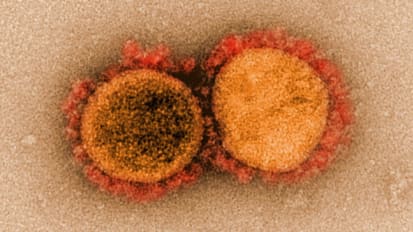 News
News
MUSC Hollings Cancer Center oncologists found that using a combination monoclonal antibody (tixagevimab-cilgavimab) against the SARS-CoV-2 spike protein in patients with blood cancers prevented moderate and severe COVID cases.
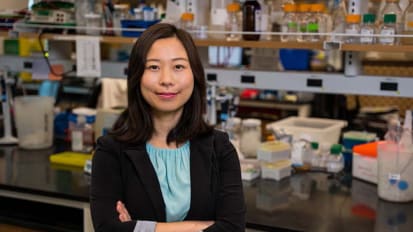 News
News
A type of cell that plays a key role in pancreatic cancer can trace its origin back to a structure that forms during embryonic development, new research at MUSC Hollings Cancer Center shows.
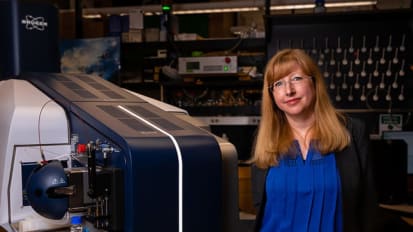 News
News
Molecular Changes in Breast Cancer Give Clues to Disparities
It’s a figure that stands out. Black women have a 36% higher breast cancer mortality rate than other races in spite of having a similar incidence to White women.
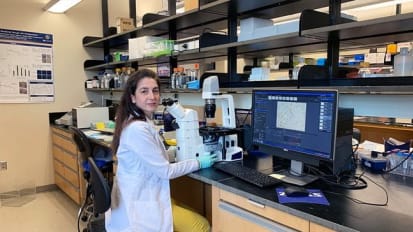 News
News
Finding the Right Target to Prevent Medulloblastoma Relapse
With about 350 new cases of medulloblastoma each year, this cancer is classified as a rare disease and doesn’t get as much attention as more common cancers. But to researcher Jezabel R. Blanco, Ph.D., that’s all the more reason to focus ...
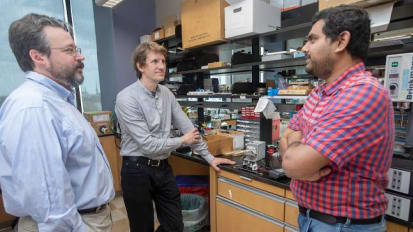 News
News
Preventing Chemotherapy From Overstaying Its Welcome
Removing toxic chemotherapeutic drugs from blood after cancer treatment prevents them from reaching the heart
The Hollings Cancer Center at the Medical University of South Carolina is a National Cancer Institute-designated cancer center and the largest academic-based cancer research program in South Carolina. The cancer center comprises more than 120 faculty cancer scientists with an annual research funding portfolio of $44 million and a dedication to reducing the cancer burden in South Carolina. Hollings offers state-of-the-art diagnostic capabilities, therapies and surgical techniques within multidisciplinary clinics that include surgeons, medical oncologists, radiation therapists, radiologists, pathologists, psychologists and other specialists equipped for the full range of cancer care, including more than 200 clinical trials.